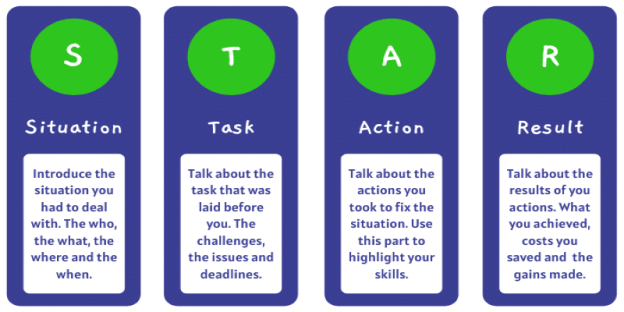How to Prepare for Behavioral Interview Questions
Are you getting ready for a big job interview? Feeling nervous about those tricky behavioral questions? You’re not alone. Behavioral interviews can throw even the most confident candidates off their game. These aren’t your usual “Tell me about yourself” questions. They dive into how you think, how you act, and how you solve problems—in the real world.
So, how do you prepare for them without sounding too rehearsed? What are interviewers really looking for when they ask, “Tell me about a time you faced a challenge”? In this article, we’ll walk you through exactly what behavioral interview questions are, why they matter, and how to prep for them with confidence.
What Are Behavioral Interview Questions?
Behavioral interview questions are designed to uncover how you've handled situations in the past, because it's believed your past behavior predicts your future performance.
Instead of asking what you would do, the interviewer asks what you did do.
Some common behavioral questions sound like:
- “Tell me about a time you had a conflict with a coworker.”
- “Give an example of a time you had to meet a tight deadline.”
- “Describe a situation where you had to lead a team.”
These questions aim to dig deep into your problem-solving, communication, teamwork, and leadership skills—and more importantly, your mindset when challenges come your way.
Why Do Employers Use Behavioral Interviews?
Think about it. Resumes and cover letters can be polished to perfection. But your behavior in real-life situations tells a deeper story.
Employers want to know:
- How do you think under pressure
- Whether you take initiative
- If you collaborate well with others
- How do you recover from failure
A well-answered behavioral question paints a clear picture of your value, not just as a worker, but as a person.
Start With the STAR Method (But Don’t Sound Like a Robot)
If you’ve googled interview tips, you’ve probably come across the STAR method. It’s a great tool—but it’s only helpful if you use it naturally.

STAR stands for:
- Situation – What was going on?
- Task – What were you responsible for?
- Action – What did you do?
- Result – What happened in the end?
Here’s a quick example:
Q: Tell me about a time you had to solve a difficult problem at work.
A (STAR):
Situation: At my last job, our customer support system went down unexpectedly during peak hours.
Task: I was responsible for managing client communication.
Action: I quickly drafted a crisis communication plan, looped in our tech team, and personally reached out to our top-tier clients to explain the situation.
Result: The issue was resolved in under two hours, and we actually received positive feedback for how we handled the outage.
The key is to tell a story, not recite a formula. Interviewers are human. Speak to them like one.
How to Prepare: Step-by-Step
Make a List of Likely Skills
Before anything else, study the job description. What soft skills and traits are they clearly looking for? Is it leadership? Adaptability? Conflict resolution? Initiative?
Then brainstorm stories from your past that highlight those skills.
Try to cover themes like:
- Teamwork
- Problem-solving
- Handling pressure
- Taking feedback
- Leading a project
- Navigating conflict
- Learning from mistakes
You don’t need 100 stories. Around 5–7 solid examples will do the trick if you can adapt them to multiple questions.
Use Real Stories (Even Imperfect Ones)
Not every story has to end in a smashing success. Sometimes, the best answers come from failures or learning moments, as long as you take responsibility and grow from them.
Here’s an example:
Q: Tell me about a time you failed.
A strong response might be about missing a deadline because you underestimated how long a task would take, but you learned to break down projects better and communicate expectations earlier next time.
Be real. Interviewers respect honesty and self-awareness more than a flawless highlight reel.
Practice Out Loud
Writing notes is good. Speaking them out loud is better.

You don’t want to memorize a script. But you do want to feel comfortable telling your stories naturally and clearly.
Practice with a friend or even in front of a mirror. Focus on:
- Keeping your tone conversational
- Being clear and concise (2–3 minutes per answer)
- Avoiding filler words like “um” and “you know”
If a story starts sounding rehearsed, tweak your delivery. You want it to feel fresh, not robotic.
Watch Your Body Language
Behavioral interviews aren’t just about what you say. They’re also about how you say it.
Interviewers are picking up on confidence, enthusiasm, and presence.
Tips to keep in mind:
- Make eye contact (especially in video interviews)
- Sit up straight, but not stiff
- Smile when appropriate—especially when talking about teamwork or achievements.
- Avoid crossing your arms or fidgeting.
You’re not being judged on acting skills. Just show up as the best, most grounded version of yourself.
Be Ready to Pivot
Some behavioral questions are curveballs.
For example:
- “Describe a time when you had to persuade someone.”
- “Have you ever disagreed with your boss? What happened?”
- “Tell me about a time you had to learn something quickly.”
If you don’t have the “perfect” story, that’s okay. Be honest. Adapt a similar experience and explain how it relates.
Interviewers understand that not every candidate has 15 years of experience. What matters is your ability to think on your feet and reflect clearly.
Sample Questions and Answer Prompts
Here’s a cheat sheet of common behavioral questions—and what they really want to hear:
Question | What They’re Evaluating |
“Tell me about a time you had a conflict at work.” | Emotional intelligence, communication |
“Describe a challenge you overcame.” | Resilience, problem-solving |
“Give an example of a goal you set and how you achieved it.” | Goal orientation, initiative |
“Tell me about a time you made a mistake.” | Accountability, growth mindset |
“When did you take the lead on something?” | Leadership, confidence |
Getting Ready To Nail It
Preparing for behavioral interviews doesn’t have to feel overwhelming. It’s really about getting to know your own experiences and learning how to talk about them with clarity and confidence.
Think of it like this: You’re not just answering questions. You’re telling stories about your growth—and showing why you’re the right fit for the role. So go ahead. Pick your best stories, practice out loud, and walk into your next interview ready to own the room. You’ve got this.





